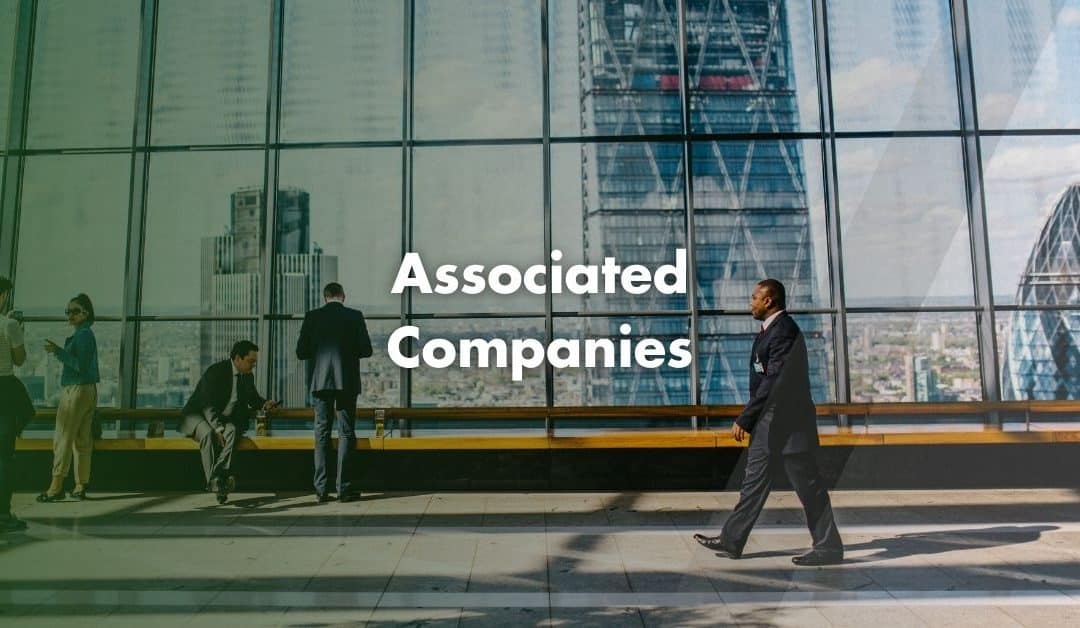From April 2023, the rules around Corporation Tax in the UK changed. One of the biggest changes was the return of tax bands based on profit levels. However, if your company has associated companies, those profit thresholds reduce. As a result, more businesses may find themselves paying tax at higher rates or having to make earlier payments.
What are Associated Companies?
In straightforward terms, a person or group creates an association between companies by controlling both, or by controlling one and the other. A person or a group can exercise control directly or indirectly, and it can even include overseas companies. However, dormant companies and certain passive holding companies do not fit this definition.
“Control” means having power over a company’s financial and operating affairs. This usually includes:
- Owning more than 50% of shares
- Holding more than 50% of voting rights
- Receiving the majority of profits or assets upon winding up
Importantly, people can hold control indirectly, such as through nominee arrangements or via associated persons. However, rights held by associates, such as family members, are only attributed where there is substantial commercial interdependence. This broader definition allows HMRC to associate companies even when they do not seem closely linked at first glance.
When are Companies Not Considered Associated?
Not all links between companies result in association. Here are some exceptions:
- Dormant companies
- Passive holding companies that only receive dividends and pay them out
- Lack of commercial interdependence may prevent association, even when companies are under Common Control
These exceptions are important because they prevent unfair classification in cases where businesses have no operational or financial connection.
How Control Works
To figure out if companies are associated, you must identify who controls them. Control typically exists if a person or group:
- Owns the majority of shares
- Has most of the voting power
- Receives the majority of profits or assets
However, Control is not always straightforward. HMRC includes associates when looking at Control. Associates include:
- Spouses and civil partners
- Parents, children and siblings
- Business partners
HMRC may treat two companies as associated if one person controls one company, their associate controls another, and commercial interdependence exists. They also consider attributable rights and may count your associate’s rights in another company as your own.
Sometimes, a group of people acting together controls a company rather than a single person. HMRC identifies the smallest group that can exert control as the Minimum Controlling Combination. They classify two companies as associated if they share the same controlling combination.
Substantial Commercial Interdependence
This concept is the deciding factor between whether two companies are truly associated. HMRC looks at three areas:
1. Financial Interdependence – HMRC considers companies interdependent when they provide financial support to each other or share financial links to a common business.
2. Economic Interdependence – If businesses share customers, work towards the same economic goal, or generate income that benefits the other, they may be economically interdependent.
3. Organisational Interdependence – Sharing staff, premises, management or equipment can signal organisational links. Even a shared office or IT system can count.
Even if just one of these types of interdependence exists, HMRC may deem the companies associated. The more overlap, the stronger the case.
Corporation Tax Rates and the Impact of Associated Companies
Since 1st April 2023, Corporation Tax has been based on company profits:
- 19% for profits under £50,000 (Small Profits Rate)
- 25% for profits over £250,000 (Main Rate)
- Marginal Relief applies on profits between £50,000 and £250,000 which gradually increases the tax rate
However, you must divide these limits by the number of associated companies plus one. So, if your company has three associates, your threshold drop to:
- £12,500 (Lower limit)
- £62,500 (Upper limit)
This could push more of your profits into a higher tax band, even if total profits have not changed. Marginal Relief offers a tapered increase from 19% to 25%.
How Associated Companies Affect Tax Payment Deadlines
Associated companies also affect tax payment deadlines.
- Large companies (profits over £1,500,000) must pay tax in quarterly instalments
- Very large companies (profits over £20,000,000) must pay in accelerated instalments
You must divide these thresholds by the number of associated companies. So, a company with four associates has a large-company threshold of just £300,000. This can result in earlier tax payments, even for companies that would not otherwise meet the standard thresholds.
Companies newly meeting the “large” threshold may get a one-year grace period before requiring to pay instalments, unless their profits exceed £10,000,000. No such grace period exists for “very large” companies.
Contact Us
We are not just accountants; we are Chartered Accountants with one of the most reputable and premium accounting bodies. We are registered and regulated by ACCA; so you can rest assured that you are in good hands. Knowing this, don’t hesitate to get in touch with us if you require assistance: Pi Accountancy | Contact Us
This article is for general informational purposes only and does not constitute legal or financial advice. While we aim to keep our content up to date and accurate, UK tax laws and regulations are subject to change. Please speak to an accountant or tax professional for advice tailored to your individual circumstances. Pi Accountancy accepts no responsibility for any issues arising from reliance on the information provided.

